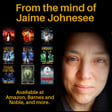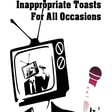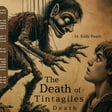Become a Creator today!Start creating today - Share your story with the world!
Start for free
00:00:00
00:00:01

Guest: Author Caryl Hallberg
Caryl Hallberg is a USA citizen living in Tomar, Portugal. She has been writing fantasy fiction since the 70s under a pseudonym, and has recently released her first fiction novel under her own name. A Brush with Mortality is a psychological suspense mystery.
Caryl and Wednes talk Cognitive Behavioral Therapy, the perils of writing demographics we don't live in, Literary Fiction, and how her experiences as a patient during the onset of the AIDS epidemic fueled her to write her most recent book. Also, hunting dogs, Baby Jane Hudson, allyship, and why everyone can benefit from therapy.
A transcript of this episode is available here.
Transcript
Introduction to Neurodivergence and Art
00:00:02
Speaker
You are listening to The Mentally Oddcast, where we talk with creatives about neurodivergence, trauma, addiction, and all the other things that impact and inform our art. Our goal is to show everyone that no matter what you're going through, you are not alone and you can make art about it.
Meet the Hosts and Guest
00:00:34
Speaker
Hey friends, you are listening to the Mentally Oddcast. My name is Wednesday Lee Friday and today we have with us Carol Hallberg. She is a ah who wishes's a U.S. citizen who actually lives in Portugal and she's been writing fantasy fiction since the 70s under a pseudonym but has recently raised her first released her ah first fiction novel under her own name. It's called A Brush with Mortality, and it's a psychological suspense mystery. She has degrees in psychology, landscaping, visual arts, and mythology, and is a fan of dragons, steampunk, witchcraft, and ritual-based oral traditions, which is something I enjoy as well. Hi, Carol. Thank you so much for being here.
00:01:21
Speaker
Hi, Wednesday. I am so excited to be talking with you today. Thank you for having me. Oh, our pleasure. Our pleasure.
Carol's Experience with Mental Health and Childhood Fears
00:01:28
Speaker
um So unlike a lot of our guests, Carol actually does not have a mental health diagnosis of her own, but her work involves helping those who do. So I think this is going to be pretty interesting. Before we get started on the heavy stuff, We like to talk to our guests about the first horror movie they ever remember seeing. I'm a horror person myself. And even people who are not horror people often have a good story about their first horror movie. So let's have it. Well, that's such a cool question. And I honestly, horror movie, I love horror movies. And so
00:02:09
Speaker
It's hard to remember what might have been my first but I will tell you that what my earliest memory is watching Twilight Zone as far as Entertainment is watching Twilight Zone on television But for a movie I can tell you it's not maybe a horror movie, but it was a horror fine movie experience um Okay, I was raised Catholic and went to a Catholic school taught by nuns who in those days wore habits, you know, all like and the white and all that. And they had in those days very strict codes about who could see which movies from the Catholic Church, right? And the school. Okay. And whatever happened to baby Jane came out.
00:02:59
Speaker
ah oh And our mothers used to just drop us off at the theater, some mom would drive a pile of us to the theater kids, all little kids, right? And with the bags of homemade popcorn and some candy. And we'd go to the movies all Saturday. And I don't know what our mothers did during that time, but they were free. um And so we all went to whatever happened to baby Jane, not really knowing what we were getting into. And We're sitting in the theater and the lights are just going down when in walks six nuns from our school. Oh, no, busted. And when they walk down and they go all the way down to the front and they sit in a row in the front seat for this movie.
Impact of Fear and Authority on Childhood
00:03:53
Speaker
and we were terrified because what if they saw us we were breaking every rule that we knew of to be in the movie in the first place what if they saw us and then told our parents or got us in trouble so I mean it's horrifying and we all and we were afraid to move or make a sound and then the movie started and we were scared to death by the movie as well yeah it's a it's a scarred scarring episode in my young childhood ah Wow, yeah, I would think so. that that That kind of fear, especially when you know you did something wrong, even though you know seeing a movie should never be wrong, especially that one. um Wow, what a great story. oh Nuns are scary, especially when they travel in packs of five. I have to agree. I actually have an aunt who was a nun for a while, but is is not any longer.
00:04:46
Speaker
um But they didn't wear the habits. When I went to Catholic school, I was only in Catholic school for two years, and there were not very many nuns. I think there were two. And they did not wear habits anymore, but they certainly had a lot of uptight feelings about things that they could not adequately explain. Oh my gosh, yes. Because I'm actually low-key autistic, and one of my ah one of the ways that that presents is that I don't want to do anything if it doesn't make sense. You know, like you could probably make me do something, but if it doesn't make any sense and I don't understand, that's just not the way to get my best performance. And yet in in Catholic school or particularly in in catechism, um any questions were perceived as, why are you such a smart ass? And the answer here is always just because it says so. Right, like you're telling me a talking snake made a lady eat an apple and that's why God's still mad at us. Yeah, obviously I have follow up questions.
00:05:49
Speaker
um Um, so I'm aware that you are involved in cognitive behavior therapy.
Exploration of CBT and Therapy Methods
00:05:57
Speaker
Yes, that's my primary therapeutic form. Okay. and I understand that as being like a ah very solution-based treatment and not necessarily, well, I don't want to say it's not about finding the root of your problem, but it is it's largely focused on moving forward. right am i Am I understanding that correctly? That's that's essentially it. it is about It's about identifying what is that what you're experiencing now in this time, in this moment, in this part of your life. and then
00:06:26
Speaker
how to move forward from there and how to deal with that. So yes, there is some elements of traditional talk therapy, but it's really based in finding positive solutions. And it's entry I was drawn to it because I like practical things. I like problem solving. And I'm not saying that all therapeutic needs can be solved with that, but I i was drawn to it. and a good CBT therapist, and um you are gonna get all kinds of comments on this statement. um You should be pretty much done with whatever original problem your your client came to you with in about 20 sessions, assuming they're doing the work, right? Right, okay. and And then you can move on to another issue or another problem. But but CBT is a very,
00:07:26
Speaker
figure it out, teach the tools and move forward. And I find that doing that and also using more traditional and other modalities of therapy work. So talk therapy is important, but I don't personally, I don't like just, you know, going to a therapist for 40 years once a week and you're telling the same origin of my trauma story over and over and over again, which is the Freudian mythology, right? Well, yeah, I think that there's just ah I think that psychology has come such a long way. There are a lot of things that work for different people. And, and I think that that from a the therapist,
00:08:14
Speaker
point of view, as the provider, you want to find the type of thing that works for you to deliver, right? What are you really good at delivering? And that's what I'm good at doing. That's awesome. That is amazing because I do know people that have been in therapy seeing the same therapist because I know switching therapists can be a hassle and could really disrupt things in in your treatment, but but people that have been seeing the same therapist for years and years and years
00:08:47
Speaker
and not really like getting anywhere. like They don't feel that overall their life has improved. They don't feel like they're breaking patterns. and i mean When I hear that, my advice is to find a different therapist because that's you know it's clear it's it's not supposed to take that long. Right. And I think, well, because people look for different things in therapy. Some people really just want a sounding board or they want someone to affirm like, you know, you describe the way your partner is treating you and then say, am I supposed to be mad about that? Is that okay that I'm mad? You know, that sort of thing. Yeah, don't get me wrong. I'm not saying there isn't a place for talk therapy. And I think that therapy is probably a good idea for literally everyone.
00:09:33
Speaker
At least at some point in their life, if not, it's to have a non-judgmental person with no skin in the game, so to speak, right? To go and talk to to to, to bounce your ideas, your thoughts, your feelings off of. That's a very useful thing to have in your life. um Yeah, but if you're talking about specific issues like depression or anxiety or PTSD or any number of other things, I think that then when we're talking in psychology that different modalities work for different people different and better than some others and you have to find the one that works for you.
00:10:17
Speaker
and Okay, so like with that in mind, ah do you utilize EMDR therapy? I don't. However, that doesn't mean I don't appreciate it. So I knew you were going to ask this question, and I don't want to get down a rabbit hole here, but EMDR uh in case your listeners don't know is uh using it's a type of therapy where uh eye movement is employed in a very strategic way that's as deep as i'm going to go in that but what it's doing is working your right hemisphere and your left hemisphere in a particular way and
00:10:59
Speaker
That is the same thing that tapping does. There are therapies where you hold a little electrode in each hand and and the therapist is having them go off at different times, right, left, right, left. There's all of these different um therapeutic
00:11:21
Speaker
practices that have you doing something that is tactile or movement related that's working your right hemisphere and your left hemisphere. And what science says, and I really like science a lot, so I go to science all the time, what's the empirical evidence, right? What science has shown us is that when you do anything that does that back and forth, whether it's sound, touch, movement, whatever it is, that creates a a environment in your brain to begin to rewire your neural pathways.
00:12:08
Speaker
And that's what you want to do is get your get these new, more positive neural pathways going. So for someone that suffers from anxiety, for instance, if you can do the ah good with a good practitioner, do that left hemisphere, right hemisphere thing, whether it's EMDR or any of a number of other practices, that will be make it possible for you to change those neural pathways and and step out of the anxiety, step out of the trauma reaction to things. So it's actually science based and really good. And it's again, I'm going to say it again, whatever works for the individual, that's the thing to use. Yep, absolutely.
Personal Trauma and Recovery Methods
00:13:01
Speaker
I
00:13:02
Speaker
I had a traumatic episode, oh gosh, when I was in my 50s. I'm really old listeners, so. When I was in my 50s, I had a ah rather traumatic incident that hit me harder than any other thing that I'd ever had happen to me. And I and i did have a trauma reaction to that. What worked for me was a type of sound therapy where I went in they were met you could see my brain on a screen right how it was firing and then I had things attached in my head and they were playing sounds into my brain and they literally turned off the fight flight portion of your brain which is back behind your ears on either side and mine were kind of
00:13:52
Speaker
permanently turned on, if you will, which happens with a lot of PTSD people. And they were able to redirect that. But it was the sound going back and forth in a very specific way that helped my brain retrain its neural pathways. That's what happened. It flipped switches, right? Yeah. Well, that's that's my understanding. um I had EMDR for ah a few times a year for several years. Um, I, I had, uh, like a violent childhood. So I was one of those people that was like fight or flight all the time. And then I it' turned on. Right. Right. And then, uh, I started dating a man that I actually didn't have to be on guard with all the time, but I was like flinching and I didn't like being touched and.
00:14:42
Speaker
you know, a lot of those kinds of things were just bleeding over into my relationships. And I thought, you know, I'm gonna, I'm gonna lose this guy if I flinch every time he tries to touch me, it's making him feel bad. And, and I had really good luck with with the MDR. And basically, what what I was told and what I kind of experienced was that it teaches it gets rid of those like visceral, instinctive reactions and lets you ah deal with things, you know, logically rationally. So, you know, I'm not Well, and it's interesting to me because it kind of takes me back to the, you know, the old school alienist philosophy of ah that that people are alienated from their true self by something and then you just find that thing and get rid of it. Like, it's it's pretty simplistic, but I think in ah in a larger, like, more general sense, that's that's still kind of apt today.
00:15:40
Speaker
It is. I don't disagree with you. And what's lovely about our technology today is we actually can look at the brain working as we're doing things, right? Yeah. And that fascinates me a lot. I love that. and um I certainly haven't studied it enough to call myself an expert, but ah it fascinates me so that you can look at a brain and see that the fight or flight is turned on and it's not turning off. you can see that other parts of the brain are on or off or not operating correctly. And it's just like, okay, we're gonna rewire this, we're gonna change the pathways, we're going to flip that switch. And and all of that is just really a lovely, um ah it's very mechanical, right? That's the problem solver in me. but um But it also relates to what you're talking about, of just finding a different way of thinking about it.
00:16:38
Speaker
So let's say a person doesn't see the point of therapy or maybe they've tried therapy and it hasn't worked out. um What would you say to someone to convince them of the value of of not giving up on therapy to to keep trying? Yeah. Well, I'm going to. I want to preface this that when we're talking about this, we're talking about people that are in a, no matter what else is going on, they're in a state where they're able to still make their own decisions and and to make reasonable, thoughtful decisions. So here's the thing. If you think therapy is one thing or another, it's not. It's many different types of ways of um approaching
00:17:27
Speaker
mental health. There's so many different therapeutic models now and they're and most of them are valid. And what you need to do is find the one that works for you as an individual because there's no one size fits all. It's it's really up to the therapist and the individual. So if you go to a therapist and it doesn't work, That's okay. Might be a very good therapist, just not the right one for you, not the right mentality for you. Find someone else, a different kind of therapy. I think there's a place for all of them, Jungian, Freudian, all of the different things. Most modern psychologists use some stone soup mixture yeah yeah ah practices, right, that works for them.
00:18:19
Speaker
and they pull up and this is certainly what I do they pull up and out of their knowledge base what they think is going to work for their client that's in front of them they don't have one oh this is my we're gonna do this and then this and then this and then this no they listen to the client they try and figure out what it is that's going to work and then do that with them and if you find somebody that only has one way of being and And when we're working for all their clients, I would say that's the person to avoid. Right, right. and So a good therapist is going to tailor their therapy to the specific needs of of each patient. And if they're not doing that, then probably best to look elsewhere. that Yeah, that makes sense. Yeah.
00:19:06
Speaker
every A friend is not the same as a therapist. Friends are wonderful. And you should also have friends that you can just dump on that are going to say, yeah, guy sucks. Or you're absolutely right. Let's go slash some tires. Whatever they need your friend to say, right? The therapist can't is it not going to say that. The therapist is going to question you and make it hard. Your friend's going to say oh I really feel for you and I understand where you're coming from and that's horrible or that's great or whatever the therapist is going to go so what do you think about that and what do you well what do you think that means right and they're going to drill down and they're going to ask questions that make you realize that you're not thinking about everything
00:19:50
Speaker
having to do with whatever your subject matter is. So I really think having a therapist is such a healthy way to move through life. Whether you think you have an issue or not, I think it's helpful. Oh, I would agree. And I think so many of the people that I mean, I'm not a therapist, but I can pinpoint people and say, you know what, you would probably benefit from therapy. And it's, it seems like so many of the people that are the most resistive to it are the ones that I don't want to say need it the most, but that's what I mean. I mean, they need it the most. Yeah. It just seems smug to say so. Um, um okay. So if we could actually, uh, change topics for a second, I know that you have a cat, but also you have a Pedango, which I love. I wish I could have one.
00:20:46
Speaker
I live in an apartment, but they're like a super ah active
Carol's Life in Portugal and Novel Inspiration
00:20:51
Speaker
rambunctious dog. They like to hunt. Does yours hunt? Well, yes. i My Padango is a ah breed native to Portugal. And it was there there's two types and three sizes. So there's a wire hair, which is not really a wire hair at all, and a short hair Padango. And then there's a small, medium, and large Padango. Oh, wow. mine is a medium wire hair. So think of about think of a small ish medium sized dog that's going to a punk rock concert. And that's what she looks like because her hair just goes every which direction and it's just and she looks like she might have some disease but no that's just how they're
00:21:38
Speaker
Their coats grow. It's all weird and patchy, long here and short there. And it's just crazy. i One of these days, I'm going to give her a mohawk in blue. Awesome. so yeah they're bre And the different sizes are bred to hunt different things. So my dog, Rosie, um her size is bred for rats and midsize vermin, if you will. There is an Egyptian mongoose in the park where we walk every morning. I have to have her on leash when we're in that part of the park, for sure, because she would just disappear up the hill and be gone until she found the mongoose. And I'm not sure who would win that particular discussion. Right. So I, I, I guard her very carefully. They're incredibly sweet dogs, not, they're not
00:22:35
Speaker
Border Collies or German Shepherd Smart. They're sweet. And they're and they can hunt, but they're not. She's not the brightest bulb I've ever had. When I got to Portugal, I decided I and got settled in my home. I thought, OK, now I can get a dog. So I went to the local rescue. And I asked for their oldest dog that had been there the longest. And she had been in the kennel for three years and she was 10 years old. And I thought, oh, this is perfect because I want an old dog because I'm old. So I want a dog that's going to die before me so I don't have to worry about what happens after I'm gone. I know this is crazy thinking, but this is how I this is how my mind works. And so I had 10 years old, great. And I got her home and fell in love with her.
00:23:31
Speaker
And that's all great until I learned that Padangos live to be 20. Oh my goodness. So they they have much longer life spans than the majority of dogs out in the world, dog types out in the world. So now I don't know. Luckily she has quite a few boyfriends at the cafe next door. so Wow. She is very sweet though and she's and and because she is middle age she doesn't she's lively when she's lively but when we're home and I'm working she's just asleep under the desk. We talk a lot ah around here about how physical challenges can create mental challenges even in those who are neurotypical and I understand that you have some experience with this what would you like to tell us about that? Well it actually relates to my novel that
00:24:20
Speaker
came out a brush with mortality because this novel in part, not in total, but in part, is kind of a love note, if you will, or a thank you note to the LGBTQ community. um I was born with a compromised immune system. So everybody's heard about the boy in the bubble, right? Everybody knows that. urban I was kind of like that. I was the girl in the bubble, except I didn't have a bubble. And they didn't know why I kept getting sick. I just kept getting sick. So my entire childhood, I was sick. I missed so much school. ah I would catch anything that came around. I would get sick with mystery diseases. But but medicine at that time,
00:25:19
Speaker
didn't know how to figure out what was going on. And then I ended up in the hospital at UC Medical Center in San Francisco in 1981, I think it was. um might I might have the date wrong. And they didn't know where to put me because they didn't know what was wrong with me. And it was pretty bad and it was pretty ugly. So they put me on a ward that they had created. And I was the only woman on that ward. And I was the only ambulatory person. So I would walk around that ward with my little, you know, trundling my little IB poll. And visit the other people. And what that was, is that was the first AIDS ward before AIDS had a name. Before HIV had been admitted identified.
00:26:19
Speaker
Wow. The young men that were in this ward with me were very quickly dying of AIDS. Oh my gosh. I survived. I had three or four surgeries that go around and I survived. um But because of the HIV AIDS epidemic and because of all of those in the early days, young men dying and then other people, a lot of research was done on immune systems, immunology. and And because of that, by the time I turned 30, I was diagnosed as having, and then DNA was kind of discovered or, they were able to determine that I had a genetic immune system issue that
00:27:18
Speaker
And that's why I would get these really strange things happening and get sick all the time. The only reason I'm alive today and I'm a hundred percent convinced of this is because of all of those young men dying. Wow. Because of the research that occurred because of that. And so I've always felt this very bizarre Like I'm very grateful, but I'm very sad. That's not how I would want the world to be. It's just how the world is. sure And this book, A Brush with Mortality, has in it, um the protagonist is a menopausal white woman who's straight. But the other primary character in the book is a bisexual gentleman.
00:28:16
Speaker
Horace Cosgrove Drucker III. And they have a lot of dialogue and there's a lot of discussion about practices around the gay lifestyle during that period of time and and then into the year 2000. And in that character, Drucker, is dying of AIDS. And so they're at his deathbed having this conversation. that's the part of this book that for me is sort of like a ah testament or witnessing, let's call it that, I like that word, witnessing, okay yeah of of what was experienced and and my gratitude for that horrific thing making something positive happen. And clearly not just for me, but for all the other people in the world that have any form of gene genetic immune
00:29:14
Speaker
issue, that made all the difference because it created an entire science that didn't exist before. That's, that's huge. That's just incredible. Now, I would think that being sick a lot as a child would be very isolating. um And so I wonder, when you're in the hospital, and you're really the only patient who can can walk around, I mean, were you talking to the other patients? Yeah, I visited them, I sat with them, because nobody knew what it was, first off, right? Nobody knew what was happening, something horrible was happening. They were in at that point, they were trying to figure it out.
00:29:52
Speaker
So I was walking around and a lot of these young men were already comatose or whatever. I would just sit with them ah because no one was visiting. Everyone was afraid. So there were no visitors. It was this quiet, empty ward with just me and a bunch of young men that were dying. There weren't even a lot of nurses around. Because you i I was a kid during the beginning of AIDS. But I do remember that if you had it or if people thought you had it, they didn't want to hug you. They didn't want to shake your hand. I mean, it was the the ignorance just led to so much just self protection and shunning of of people. Well, and craziness, right? Not unlike what we experienced in 2020, by the way. ah um A lot of
00:30:42
Speaker
Because when something's just beginning to happen, nobody knows. And so all the precautions have to be taken until they figure out what's happening, right? but And when you have to do that, then all of the hatred and all of the fear bubbles to the surface as well. yeah ye And so there was literally no one visiting this ward at all. um And yeah, as a child, I had a lot of free time on my hands. So guess what? I read voraciously. I wrote. I come by my authorship, honestly, that way. um I had a lot of other things in my childhood that could have caused me to have different mental health or trauma related things, but because I had so much time to sit and read and be quiet by myself,
00:31:33
Speaker
I was able to go deep, especially as I was older, I was able to go deep into thinking about spiritual things and reading everything and studying everything and and figuring it all out and being left alone, which I really love. I'm an introvert, so that worked out pretty well for me. nice Nice. Yeah, I used to get that a lot. Why are you always by yourself? Well, because you can't read in a group. like What what are you asking me? um So I do definitely get the sense that you are focused on giving voice to unheard demographics, um which is is wonderful, obviously.
00:32:15
Speaker
I wonder, though, particularly in the socio-political climate that we're living in, it seems like a lot of people are ready to call out things that they don't agree with and that can get a little obnoxious, I think, and I think it it also um can It just feels very accusatory at times toward people that have good
Challenges and Themes in Carol's Novel
00:32:40
Speaker
intentions. So I just wonder if you've been challenged yet on any of your portrayals of characters that are in demographics that you are not. Well, this is it's interesting because um this novel is what's called literary fiction, which means it doesn't fit into a particular genre, but the way that books are sold
00:33:02
Speaker
is by putting them into the little tiny, very tight little boxes, right? yep and And so literary fiction is about the words, it's about the craft of writing more than it is about a plot or whatever. And so it's very hard to categorize that for distribution by booksellers, to booksellers and to libraries. And so it's funny, I can put down what I think and other, parties within my publishing stream can put down what they think. And then it gets to the bookseller or the library and they make their own decision, right? And this book has erotica in it, but not it's not an erotic novel. It just happens to have two scenes and some dialogue that are erotic.
00:33:56
Speaker
um But it's also got suspense. It's also got a lot of psychological stuff. I have a lot of things going on in this novel and it's hard to classify it. So libraries, some libraries have rejected the novel because they think it's erotica. Oh my. Even though it's not. And and It's been classified as a mystery in some places, but it's not really a mystery because mystery is a very specific kind of genre that certain things happen to have to happen and there has to be a detective and there's no detective in this. It's interesting because what I'm waiting for is for what happened to movies to happen to books.
00:34:44
Speaker
Because back in the day, you know, in the 80s and beyond, when you had video stores, a movie had to be put in one category because you had so many copies. And so you had to pick something. And that would lead to all these arguments about why is psycho and drama and not horror? Why is Jaws in horror and not the action so section? And it was because we believe that every movie, every book, every show was one thing. And anybody that consumes a lot of content knows that no, of course, it's it's not, you know, like I would call the Lovely Bones a horror story and not everyone would. Did I say, my God, look at what happened. That's it. Exactly. The Lovely Bones um is not ah what they call a cop to my novel, but it
00:35:31
Speaker
But in a way it is, because it does have all these layers of different genres inside of it. But it's really about the language and the premise of the book, not about these genres and these tropes, right? And every person that reads that book comes away with something different. That's what I love about literary fiction, actually. And that's what I hope happens. And I think that's what's happening with a brush with mortality, because I'm looking at people's reviews and I'm looking at people's, I actually have more people sending me personal messages than writing reviews, which I find interesting. A little frustrating and also really nice. So it's like,
00:36:17
Speaker
I don't know how to feel about it. Thanks for reaching out. Please put it on Amazon. Yeah. But what I find fascinating, and this always just fascinated me about any kind of art, is that once the artist hands off the art, whether it's writing or sculpture or a painting or whatever music, whatever it is, what the person experiencing the art sees or hears or feels is not necessarily what the artist intended. Oh, absolutely. A lot of themselves. And it's so it's so fascinating to me to have someone come back and say, oh, i this blah, blah, blah about your novel, blah, blah, blah. And I'm going, oh, yeah, huh.
00:37:02
Speaker
I didn't think about that. but no you know um The premise of this particular novel is that everyone is judgmental, including the reader. And I say 99.9% of the time our judgments are incorrect. Well, that's certainly an important lesson. So there's a lot in this novel. And what I have loved consistently is that the reader feedback I'm getting is when they get to the end, they go, oh, wow, huh, I was completely wrong. And they have to make a decision. They have to change their judgment or make a decision about how they feel about
00:37:54
Speaker
the different characters in the main characters, right, about how they feel about those characters in the book at the end when kind of all this stuff is revealed. Well, that is my favorite thing when I don't see the ending coming and it still works. Yeah, because I always want to be I guess I don't need to be shocked, but I always want to have some like something emotionally impactful at the end. And it's always best if I if I don't see it coming. Now you mentioned actually ah mystery versus suspense. Now as I understand it,
00:38:31
Speaker
In a mystery book, the identity of the villain you know or the the antagonist, so to speak, is a secret until the end. Whereas in a suspense book, we know who the villain is and we just wait to see if they're going to be consequences. So so which one of these is yours? It's not a mystery because ah the other thing about a mystery is there's somebody trying to solve the mystery. And nobody's trying to solve anything in my novel. Interesting. So, and it's not truly suspense either. It just ah happens to be one of the categories it falls into because you have to put it in a category and because there is a secret through the whole thing. So if I can be a little bit disingenuous, I will say that the protagonist in the novel is also the antagonist. And you're just going to have to read it.
00:39:29
Speaker
Wow. So what a what genre readers um are you are you thinking are are going to be most interested in this book? I mean, obviously you want everyone to read it, but but who in particular? Well, first off, you have to be comfortable with LGBTQ conversations.
00:39:54
Speaker
and So that that I think is right off. but For just a general readership, I think if you liked Lovely Bones, that's going to work. um If you liked Where the Crawdads Sing, I can't believe I'm comparing myself to those two books, but there you go. You'll like this book. If you liked any of those more modern literary novels that have a little bit of perhaps surrealism in them, you'll like this. Is it gonna make me sad? I don't think so. Okay. There's no violence in it. There's no overt violence in it. Okay.
00:40:40
Speaker
Well, it's just, you know, i'm I'm pretty moody. And I think a lot of our listeners actually are our neuro divergent people. So we try to be kind of careful with like, ah somebody handed me a copy of Into the Wild one day and said, Oh, you should read this. You'll love it. And I did read it. And I did love it. But my god, it's so so sad. And yeah you you can't just ask people i think it isn't sad because this book has a lot of discussion about life, death, love and meaning in it. And so one of the the things that these characters talk about, particularly Horace Cosgrove Drucker, the third of the San Francisco Druckers, um he's dying. He's on his deathbed and he's having this conversation with our protagonist. And he's talking about how
00:41:37
Speaker
for him and he thinks for most people that death is not about a cessation of your body and it has more to do with your relationships when you're alive and what you leave behind. okay And it has more to do with with how you feel about things and how others feel about you. Um, so I don't I think it's it's not that it's it's not a funny book It's not joyous, but I also think it's just a thoughtful but not sad And the other thing I didn't do it on purpose, but i'm realizing now as i'm on a new project I have another work in project or work in progress And I have realized that one of the key characters in my next book has
00:42:30
Speaker
mental health diagnosis. And the protagonist in a brush with mortality suffers from disassociative amnesia and has a mental health issue. It doesn't bother her but might bother other people. and So I have realized that I've come to a place in my own evolution as an author and as an individual, that I am putting people with mental and emotional health issues or problems or challenges, however we want to say that, into the position of being the protagonist, of being the person that the reader cares about.
00:43:25
Speaker
Well, that's really powerful because it's I think that far too often when we see depictions of neurodivergent people, they are written by neurotypical people based on things that they've read or maybe a person that they know. And as such, they are wildly inaccurate and often insulting. um People misuse terms a lot, things like sociopath, psychopath, you know, terms like it that get thrown around and they're not They're not used properly. ah Don't even get me started on like dissociative identity disorder and the ridiculous stories that have come out of that. Well, you're, you're a little older. So you probably remember Sybil ah about as well as I do, you know, the novel and then the the Sally Field, you know, the TV movie. And I as a kid, I was just entranced by that story. And and I we all where we all thought it was possible.
00:44:22
Speaker
Yeah, well, I kind of low-key wondered why it hadn't happened to me because... Me too! Like, well, wait a minute. I've been through it. Why? Where are my protective identities? I didn't even have an imaginary friend. I'm like, come on, this is bullshit. These people are way less messed up than me and they're their mental health issues are fascinating. Right. Nobody's writing the book about my crazy ass. So there
Advocacy and Use of Privilege
00:44:48
Speaker
is that. And and you asked earlier about you know standing up for for voices that are not heard as much or are able to speak for themselves. So I'm 73 years old. I'm straight. I'm pretty
00:45:05
Speaker
I'm not vanilla by any stretch of the imagination, but I kind of am. So I'm like a fancy vanilla. But I'm an old straight white woman. And I think that that accidental thing I have, you know, it says I was born and I grew old enough to be an old woman. So that's no accomplishment there, right? It's just who? Oh, I don't know. nature And but it gives me great power because I can say literally anything. I can stand up for anyone i and no one
00:45:49
Speaker
What are they going to say to an old white woman? I mean, seriously, really, right? yeah So i I see it, and I'm a little bit of a do-gooder. I worked in nonprofit and stuff all my life. And so I have that aspect of my personality. I've been standing up for people for a long time. But now I feel like I can really just, yeah, don't screw around with somebody in front of me. Don't be a hateful individual. Don't think you know stuff when you don't. Yeah, you know, when ah when I was younger, I think I kind of fell for that like, you have to be nice if you want to change anyone's mind.
00:46:33
Speaker
And it occurred to me right around like my mid thirties that, well, wait a minute, if asking nicely for people to treat you right worked, everybody would have their rights and everybody would be treated well. Obviously, there are plenty of people who don't respond well to, hey, can you please stop being such a dick to this particular demographic? You know, and and once you realize that you got to get loud. Yeah. the The given demographic a lot of times cannot necessarily speak up in a given situation without taking great risk. Well, yeah, exactly. It's not even so much that people can't speak up for themselves. It's that they can't do it safely. They can't do it and keep their jobs or be safe in their homes. or you know So it it does become incumbent on people who are listened to to step up and and say the things that need saying. So it's really awesome that but you do that.
00:47:30
Speaker
That's its absolutely right. And I want to address another thing because ah one of my goals is also to be a really good ally. um So there are several multiple LGBTQ characters in my in my current novel, Brush with Mortality. I am straight. There is a very huge section of the book that is discussing the art of spanking. yeah as a sexual practice um because the
Research and Authentic Representation in Writing
00:48:03
Speaker
character Drucker learns that he has HIV, gears a long time ago, right? And wants to be safe, but wants to still have fun, let's say. So he develops, he he discovers that he's he has a thing about spanking and that he's very good as the spanker. He develops it into an art form.
00:48:28
Speaker
and um And so there's a lot of a lot of talk about that. Well, what do I know about a gay man spanking another gay man? Well, you know, there's lots of movies online that you could check. i know but i yeah And the movies are movies. They're not what really goes on inside the person, right? yeah So what I did when I was writing this book There's this Italian restaurant, which I'm not gonna name, but it's on 24th Street in San Francisco. And I, at their request, or at my request, they gave me a table in the back of the restaurant in the afternoon between lunch and dinner. And not unlike a mafioso boss, I would sit at the table looking at the front door through the dark, you know, it was a dark Italian bar or restaurant thing.
00:49:26
Speaker
And this is before the internet as we know it, but there was internet. I am recruited, I advertised for and got a number of people to come and who practice the act of spanking as a sexual practice. And they came one at a time into that Italian restaurant where there was no one else, right except me and the waiter. The staff was told to stay away from the table. And we would have a conversation and they would tell me their entire history and they would tell me how they felt about things and they allowed me to record their sessions. And I did that with a pretty significant number of of men of different ages and backgrounds and built that part of this novel from all of those conversations.
00:50:22
Speaker
So I did my very best to kind of try and make sure I got it right. And I do that kind of due diligence with all of my characters because I write some pretty bizarre old characters and I want to get them right and I want to get them to be human. So even if they're weird over here from a literary standpoint, I want them to be human as characters and relatable. And I want if they're representing some demographic of people, I want to make sure I've got it right. So i I went to a lot of trouble with that.
00:50:58
Speaker
And I do that with with everything that I write. My current work in progress is going back to fantasy. And it's probably going to be a series. And it's actually a fictionalized rendition of um a someone I know. it's there They gave me all their journals. Oh, wow. And they talked to me at great length. and and and And we were going to, I was going to help ghost drives or co-write their life story.
Inspiration for Upcoming Fantasy Series
00:51:33
Speaker
And I went to them and I said, this is not going to work as a memoir. It's just, it's cool, but it's not cool enough. You're not different enough. But I think I could make it into a great fiction series.
00:51:47
Speaker
And so she gave me permission to do that. And what she is is she is currently alive still. She's third generation Sicilian witch in Massachusetts. So I've started with her birth. This is the first book in the series. She's just a baby in this book. And it's her sister or her mom and her aunt and her grandmother and her great aunt. And so the other generation before her of women, Sicilian women who happened to be witches. But I've got all, um everything's coming out of her journals and then I'm adding all the fantasy part. Yeah, right. I see. And she, you know, future books in this series will have her living in the woods of Vermont and and then settling into a beautiful Victorian house in Massachusetts with a very wonderful gentleman.
00:52:44
Speaker
Um, so there's a lot there. I can write books for decades, probably using her story. Sounds like my goodness. Um, but I'm going to a lot of trouble to make sure I get the witchy-ness of it right. Um, so my house right now, I live in an 800 year old stone house in Portugal that was originally a stable until 1996 where they made it into a house. Um, It's set up as a Sicilian witch's house. ok ah yeah the I have the correct herbs and things hanging in the correct places. I have the correct images. I have a little pantry of witchy stuff that I need so I can refer to it when I'm writing. Yeah, I've gone to a lot of troubles. So let me ask now, is that, do do you have any supernatural beliefs or is this strictly for the writing?
00:53:44
Speaker
I think it's strictly for the writing. However, I don't have any disbeliefs. Yeah, I'm kind of in the same boat. Like I don't accept supernatural things for the saying, but I'm also like, first of all, it's it's just fascinating how humanity got there. You know, like those traditions, how they've continued, because obviously so many religious things began as where does the sun go at night? What makes the rain come? And you know, now that we know all those kinds of things, the fact that that those types of witchcraft
00:54:21
Speaker
and and rituals and you know nature magic and all that is uh it's fascinating that it remains i think that some of us just really want to feel like we have more control over our environment but also so much of of ritual witchcraft is especially the some of the more modern stuff has basics in in psychology you know, like a spell where you would write down all the things that are bothering you and then burn it or tear it up or throw it in the river, like that sort of thing that I think it endures because maybe it just makes people feel better.
00:55:00
Speaker
Well, you're right. And that's very insightful of you, Wednesday, because you're there's a lot of things that are used in psychology that you can easily be traced back to the traditional wise woman or witch, right? From different cultures. Guided meditation. There you go. I mean, there's just so many things. And and a lot of the spells, if you wo will, that use herbs and things, those herbs actually do have the medicinal properties that are going to help someone feel better or feel worse or whatever, right?
00:55:40
Speaker
and And there's lots of science that backs up that if you believe something enough, you can make it happen. Not the positive thinking thing, but just it moves you in the direction of getting what you want, right? Yeah. that It's interesting because i always I've actually written about this and in one of my collections. It's in the intro. But the the idea of the the difference between wishing and and wanting and you know wishing is just sort of this passive like oh wouldn't it be neat if you know i had a million dollars or whatever whereas wanting something implies an an intent and then you're going to make some effort to to get that thing
00:56:24
Speaker
And I think um it's it it it also that presents itself in the different types of magic because some types of magic are just you beseeching the gods for something as opposed to, you know, give me the strength to do these things I
Mythology, Identity, and Societal Norms
00:56:42
Speaker
need to do. I mean, it's it's a subtle thing and obviously that sort of thing is going to be different for everybody. But I think that the connection between like mythology and... i don't Have you ever read um The Goddesses and Every Woman by Jean Shinoda Bolin?
00:56:59
Speaker
I don't think so, no. It's a mythology book that she actually wrote for her doctoral thesis. And what it does is it breaks down different types of ah people, you know, mostly girls. It's it's ah mostly about, ah you know, AFAB cis girls and how they're raised and how Your personality can be impacted like if you're an athena type But your parents want you to be a herotype and just grow up and get married like how that might affect you And it goes through all the different archetypes and combinations of archetypes. It's really fascinating I should actually send you the link after the the interview. Yeah, because I would appreciate it. Thank you I think you would dig it You know, there's a there's a really old joke that I think kind of sums up what you were saying and
00:57:47
Speaker
And you probably know it about the guy, and there's a big flood like Hurricane Katrina or something, flood.
Balancing Faith and Personal Action
00:57:53
Speaker
And the guy is in his house and the police come by and they say, come on, everybody has to evacuate. and He goes, no, no, no, God will save me. Have you heard that joke? I have. I have. And then, you know, somebody hands up on the roof and there's a car. Yeah. There's like a boat comes by and he says, no, no, somebody comes by and says, jump in the boat. Come with us. No, no, no. God will save us. And the waters rise and he's up on the roof now. And yep. And somebody comes by and again and says, come with us. And he goes, no, no, God will save us. And then a helicopter comes by and
00:58:29
Speaker
and he and they say here gradually jump in the seat will haul you up and he goes no no god will save us and then he drowns and he goes to heaven and he says god why didn't you save me god says i sent you three boats and a helicopter what do you know right you have to take action you can't just want something you have to take the steps and and so if there is magic it's in it's in setting yourself into a position to be able to see the opportunities that are there and take advantage of them. Yep well stated. So yeah i then that joke always makes me laugh when I hear people say oh I'll just but just send out the thoughts into the universe and I'll win the lottery and I go no you gotta you know buy a lottery ticket.
00:59:15
Speaker
Well, you know, here in the States, people have been wishing thoughts and prayers every time there's a mass shooting and they have not curtailed. I mean, we're we're still having them. The thoughts and prayers have been ineffective to date. So there's that. We're actually nearing the end of our time. um I do like to ask, some of our guests actually have questions for me. So if you have any questions for me, you should ask them now. I appreciate that opportunity. I don't at this moment, though I would like the link to that, the book that you just mentioned. Oh, I definitely will. I'm not very interesting. So, you know, I can understand that. I'm 100% sure that's not true.
00:59:59
Speaker
Well, the good news is, at the end of every interview, we do a Mad Lib.
Fun with Mad Libs and Episode Conclusion
01:00:05
Speaker
Are you a fan of Mad Libs at all? I don't think I've played Mad Lib since my son was in high school. and That was a long time ago. Yeah, I mean, ah we would played them in school and oh, please and ah you know, I actually am known for having these at my at my parties when I've you have, ah you know, gatherings of friends to come by just for conversation and weed smoking and such. um But yeah, I we had mad libs at our wedding. We that's how known for that we are. Yes. Yeah, it's such a yeah and and it's just it's such a fun. yeah I mean, you don't have to be especially smart to play it. It's fun to play with with really smart wordy people. But the thing is, anybody can play it. You know, people bring their kids or the kids, you know, they think it's so funny to have like a dirty word. Oh, no, the noun is poop. ah
01:00:57
Speaker
So I don't know if if Mad Libs is actually cool with me doing this on my show, but I'm sure they'll tell me if they're not. So let's get started with some nouns. I need one, two, three, four, five singular nouns. OK, let's see if we can we can stick with some of the things we've talked about. So pizza. OK. Dog hemisphere. That's three, right? Uh, two more. Yeah, yeah, yeah. Um, book. There you go. And. Oh, because you said it's psychopath. All right. I also need some plural nouns. Looks like one, two, three plural nouns. Three plural nouns. Trees.
01:01:56
Speaker
I'm trying to be as random as I could possibly be. You know, a lot of people just look around the room and start yelling stuff out. Yeah, yeah. Except for the way. Trees. Bananas. That kind of goes with trees. And buses. okay so one of these is person in room female and traditionally that is always the guest and it looks like they need another person in room later so that will be me just because that's tradition um so i need an adjective actually it looks like i need four adjectives four adjectives oh god
01:02:39
Speaker
See, now you do this with writers all the time and I bet some writers just rattle stuff off. Uh, no, actually, usually it's a lot of long pauses that I have to take out because, you know, writers, right word well, that's just it. Because if you're not a word person, you have no issues with just looking around the room and yelling stuff out, but writers want to choose a good word that match takes longer. Okay. So, uh, correct. I think that's an adjective. Yeah. Yep. Oh, God. We're going to run out of time. um You give me one, Wednesday. Oh, um well, you know what? When I'm stuck for an adjective, I always use a color. So I'm going to say chartreuse. Ooh, I love chartreuse. Right? Yeah. And so, yeah, I need two more adjectives. OK, so dim, D-I-M.
01:03:36
Speaker
Okay. And stinky.
01:03:42
Speaker
Wait, was that stinky or sticky? Stinky as in snowman. Okay. All right. I need a... truth I need a number. 12. And a part of the body plural. So something that we have more than one of on our body. Well, I mean, it can be, uh, not necessarily. I mean, it could be like noses. Well, it's going to use noses. So we'll use noses. All right. And then I need part of the body singular. Butt cheek.
01:04:22
Speaker
That's one butt cheek. Not two. All right, yes, just the one. All right, that's what we need. So here we go. This is TV guidance pick of the week. ah So Thursday at 8pm, my adventures as a foreign pizza. This is an exciting and correct made for TV movie that takes place during the time of World War 12. We give it a rating of three trees. Friday, 7.30, happy bananas! When an old high school dog welcomes him with open noses and throws him a chartreuse party, this puts Carol, his former hemisphere friend, into a bad state of butt cheek.
01:05:05
Speaker
<unk> Saturday 10pm. Where have all the buses gone? In this dim thriller by the stinky director, Wednesday, is about a Manhattan book searching for a missing person in a small psychopath. Here, Reverend
01:05:25
Speaker
That's hysterical. Right? Right? yes So thank you so much for being here. Instead of Mad Libs, you could just call it AI writing. Well, no AI writing would have to actually take jobs away from people who would normally do Mad Libs. Oh, there you go. yeah
01:05:46
Speaker
So if ah if people want to find your book, where do they find it? Well, it's for sale ah on Amazon, of course, and booksellers online everywhere, some bookstores, but not broadly distributed. You can also visit my website, which is my name, Carol Hallberg.com. And you can buy it directly from the website. And there's also a whole bunch of links to all the places that it's, or too many of the places that you can buy it. Great. We'll have links in the description too, if anybody wants it. um thanks Thanks for being here. We were, I mean, this this was just a lovely talk. I'm so glad that that we were able to schedule this, because I know it's it's tricky with the the time difference and all.
01:06:29
Speaker
So thank you so much. um And for everybody else, we will see you next week. um We are sponsored by sometimes hilarious horror, and we can be found on coffee. So check us out, give us money because this isn't cheap. All right, everybody. See you next week. Thank you so much, Wednesday.















